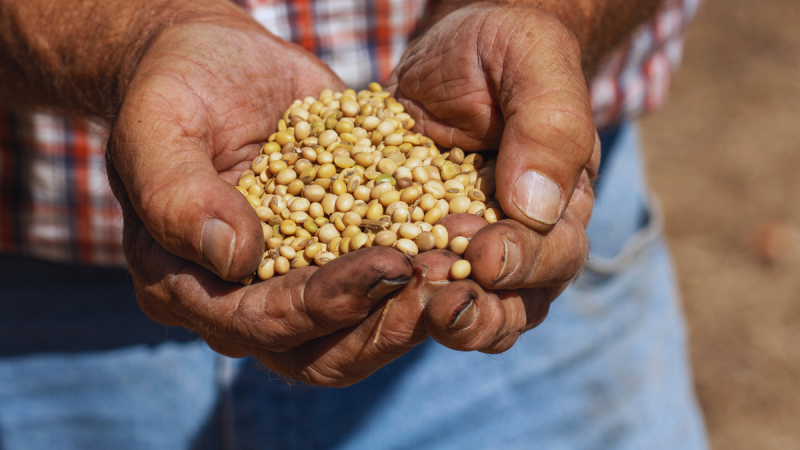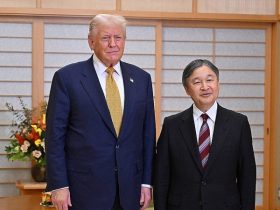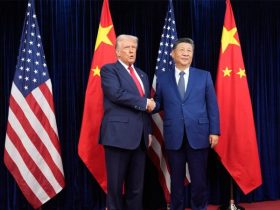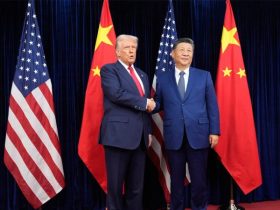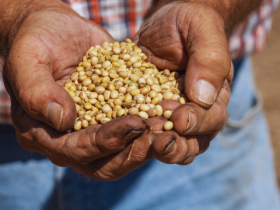As President Donald Trump and Chinese leader Xi Jinping prepare to meet Thursday, one soft-spoken U.S. export star will take center stage: soybeans.
The humble crop, a $30 billion pillar of U.S. agriculture exports, has become a powerful symbol of the economic interdependence and political tension between Washington and Beijing.
In short, soybeans have come to embody the volatility of the U.S.–China trade war. Beijing halted purchases of American soybeans in response to Trump’s earlier tariffs on Chinese goods.
China pivoted to suppliers in Brazil and Argentina, a move that underscored how quickly global trade patterns can shift and how vulnerable U.S. farmers are to diplomatic rifts between Washington and Beijing.
What began as tit-for-tat posturing between the world’s two largest economies has turned into a symbolic and economic gut punch for Trump’s rural base, whose livelihoods depend on the very trade ties now caught in the crossfire.
According to the American Soybean Association, the U.S. has traditionally served as China’s leading soybean source. Prior to the 2018 trade conflict, roughly 28% of U.S. soybean production was exported to China. Those crop exports fell sharply to 11% in 2018 and 2019, recovered to 31% by 2021 amid pandemic-era demand and eased back to 22% in 2024.
But some policy experts argue that China’s shift away from U.S. soybeans was already underway.
‘China was always going to reduce its reliance on the United States for food security,’ Bryan Burack, a senior policy advisor for China and the Indo-Pacific at the Heritage Foundation told Fox News Digital. ‘China started signing purchase agreements with other countries for soybeans well before President Trump took office.’
He added that Beijing has ‘been decoupling from the U.S. for a long time.’
‘Unfortunately, the only way for us to respond is to do the same, and that process is painful and excruciating,’ Burack said.
But for farmers thousands of miles from Washington and Beijing, those policy shifts translate into shrinking markets and tighter margins.
‘We rely on trade with other countries, specifically China, to buy our soybeans,’ Brad Arnold, a multigenerational soybean farmer in southwestern Missouri, told FOX Business. He said China’s decision to boycott U.S. soybean purchases ‘has huge impacts on our business and our bottom line.’
‘There are domestic uses for soybeans, looking at renewable diesel, biodiesel specifically produced from soybeans,’ Arnold said. ‘In the grand scheme of things, that’s such a small percentage currently, you know it’s going to take a customer like China to buy beans to make a noticeable impact. You can’t take our No. 1 customer, shut them off and just overnight find a replacement.’
That reliance on China adds new weight to the diplomatic stage this week as Trump and Xi prepare to meet in South Korea. The two leaders will meet on the sidelines of the Asia-Pacific Economic Cooperation Summit in Busan, South Korea, marking their first in-person talks since Trump’s return to office.
Ahead of the meeting, Treasury Secretary Scott Bessent said he expected China to delay rare earth restrictions and resume U.S. soybean purchases, calling it part of a ‘substantial framework’ both sides aim to maintain. Bessent also said that trade negotiations were moving toward averting a fresh 100% U.S. tariff on Chinese goods.
And in a possible gesture of easing tensions, Reuters reported that China bought around 180,000 metric tons of U.S. soybeans in the run-up to Trump and Xi’s meeting.
Whether it marks a true thaw in U.S.–China trade relations or just a temporary reprieve, the purchase underscores how deeply intertwined diplomacy and agriculture remain.
Fox Business’ Eric Revell contributed to this report.





